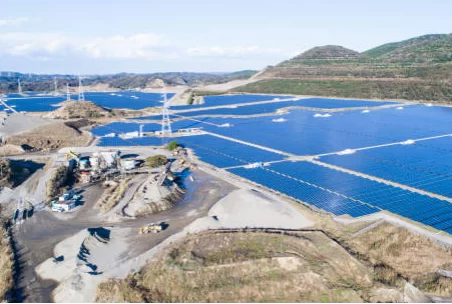Island Hybrid Energy Systems: The Ultimate Solution for Future Energy

As global demand for renewable energy rises, Island hybrid energy systems are becoming an essential solution to energy challenges. These systems combine various energy sources to achieve more efficient and reliable energy supply. This article will delve into the advantages, challenges, and future trends of island hybrid energy systems, exploring their potential to transform energy landscapes.
What are Island Hybrid Energy Systems?
Island hybrid energy systems integrate multiple energy technologies, typically including wind, solar, diesel generators, and energy storage systems. The primary objective is to optimize energy supply, especially in island areas with limited resources. By combining diverse sources, these systems enhance the reliability of energy use, reduce energy costs, and minimize environmental impact. For islands with isolated grids, such systems are crucial for achieving energy independence and resilience.
Advantages
Energy Independence: One of the most significant benefits of island hybrid energy systems is their ability to provide a stable energy supply without relying on external sources. This independence is particularly valuable for remote islands that face logistical challenges in importing fuel or electricity.
Environmental Benefits: The integration of renewable energy sources like wind and solar into hybrid systems leads to a substantial reduction in greenhouse gas emissions. By decreasing reliance on fossil fuels, these systems contribute to mitigating climate change and protecting natural ecosystems.
Economic Efficiency: Although the initial investment in hybrid energy systems can be high, the long-term economic benefits are considerable. Energy storage systems allow for the efficient use of generated power, reducing the need for expensive diesel generators and lowering overall energy costs. Furthermore, the decreased dependency on imported fuel can lead to substantial savings over time.
Grid Stability and Reliability: Hybrid systems can improve grid stability by balancing energy supply and demand more effectively. For islands, where energy reliability is often a concern due to limited infrastructure, hybrid systems can provide a more stable and consistent power supply, reducing the risk of outages.
Challenges
Despite the numerous advantages, implementing island hybrid energy systems comes with several challenges:
- High Initial Costs: The capital required to establish hybrid systems, including the costs of technology, installation, and infrastructure, can be significant. This financial barrier may be a concern for smaller islands or communities with limited budgets.
Technical Complexity: Integrating different energy sources and managing their interactions can be technically complex. This complexity requires specialized knowledge and skills for system design, operation, and maintenance, which may be lacking in some remote areas.
Resource Variability: The production of renewable energy is influenced by weather conditions and seasonal variations. Wind and solar energy are not always available, leading to potential supply fluctuations. Effective energy storage solutions and backup systems are essential to address these variations and ensure a consistent energy supply.
Regulatory and Policy Challenges: Navigating the regulatory landscape and securing necessary permits for hybrid systems can be a challenge. Different regions have varying regulations and standards that need to be met, which can complicate the implementation process.
Future Outlook
The future of island hybrid power systems looks promising as advancements in technology continue to drive improvements. Innovations in energy storage, such as more efficient batteries and advanced grid management systems, are expected to enhance the performance and reliability of hybrid systems. Additionally, declining costs of renewable energy technologies will make these systems more accessible and economically viable for a broader range of island communities.
Policy support and investment in renewable energy infrastructure will also play a crucial role in accelerating the adoption of hybrid systems. Governments and organizations are increasingly recognizing the benefits of renewable energy and are providing incentives and funding to support the transition.
Furthermore, as global awareness of environmental issues grows, there will be a stronger push towards sustainable energy solutions. Island hybrid energy systems will be at the forefront of this movement, offering a scalable and effective approach to meeting energy needs while minimizing environmental impact.
Conclusion
Island hybrid energy systems represent a significant leap forward in addressing energy challenges faced by remote and isolated regions. By combining multiple energy sources, these systems provide a reliable, cost-effective, and environmentally friendly solution. As technology advances and costs decrease, hybrid energy systems will become increasingly important in the global shift towards sustainable energy. For islands and other remote areas, they offer the ultimate solution to achieving energy independence, reducing environmental impact, and ensuring a stable energy supply for the future.
